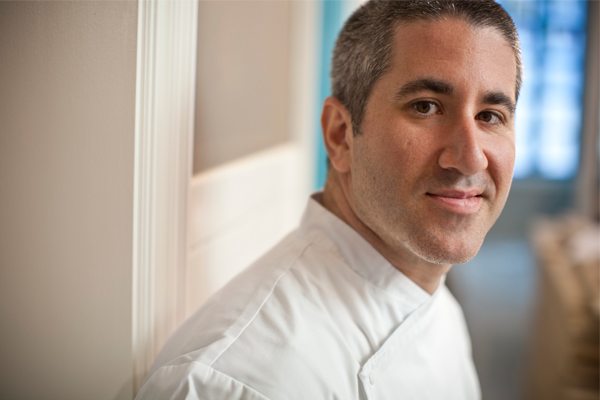Israel Looks to Food Tourism to Attract a Different Kind of Visitor

Skift Take
Israel's Ministry of Tourism understands that for decades many of its tourists have visited the country for religious pilgrimages of one kind or another.
But Israeli tourism officials also want to tell a new story and encourage visitors to indulge in the culinary offerings of this Middle Eastern nation.
And Chef Michael Solomonov, executive chef and co-owner of Philadelphia's Zahav restaurant, is someone that the Ministry of Tourism feels will help tourists – particularly Americans – discover more of Israel's must-eat foods and restaurants.
Israel and Chef Solomonov launched a partnership last week to bring American journalists to the country for a taste of its various dishes during two press trips guided by Solomonov. The trips will show journalists a behind-the-scenes look at the many of Solomonov's favorite restaurants around the country and that also highlight ways Israel’s food culture has changed in recent years. The tourism board hopes these freebie press trips turn into positive articles about the country’s food culture.
An ongoing event series Philadelphia and other U.S. cities this year featuring Chef Solomonov is also part of the partnership.
"We feel that Chef Solomonov has an increasingly wide-ranging appeal in the U.S.," said Yariv Levin, Israel's Minister of Tourism, speaking to Skift at Solomonov's Dizengoff Restaurant in Chelsea Market in New York City. "He might not be the number one reason why most Americans want to visit Israel but many will certainly turn to him for advice on where to eat or learn about the best restaurants to try, etc."
Solomonov, who was born in Israel and raised in Pittsburgh, Pennsylvania, also co-owns a handful of other Philadelphia, New York City, and Miami restaurants and was the 2017 recipient of the "Outstanding Chef" award from the James Beard Foundation.
Broadening the Base
Israel wants to attract more U.S. travelers – the country's largest international market – and feels that the Jewish-American chef's rise and cuisine will resonate with the U.S. market.
The country is capitalizing on steep visitor growth from the U.S. – more than 400,000 U.S. travelers visited Israel from January to June, a 20 percent increase over the same period in 2016. Some of that growth is attributed to El Al, the country's flag carrier, adding more U.S. flights in recent years.
El Al will launch a Miami to Tel Aviv route in November, for example, and fly between both cities three times a week. The carrier also flies from New York City, Newark, Boston, and Los Angeles in the U.S.
The country had a record 3.7 million overall arrivals in 2016 and Israel's overall international arrivals increased 26 percent year-over-year for the first six months of 2017 (more than 1.7 million).
Levin acknowledged, however, that despite record visitation growth that many travelers still perceive the country as unsafe because of violence in the state and region or the flood of refugees from neighboring Syria, for example. The Israeli government’s continued support of settlements in the West Bank, which the international community has consistently claimed are illegal, as well as the limits placed on movement by Palestinians, makes travel to Israel a political act for many.
That’s why Levin and his colleagues hope that food will bring visitors closer to local Israelis to help them better understand life in the country.
Israel also wants to give people a reason to return to Israel if, for example, their first trip is mainly for exploring religious sites, said Levin. "We just realized that we have this amazing offering and we wanted to do more with it," he said. "Israel is also a very small country, about the size of New Jersey, so it is a very manageable difference to visit different parts of the country to try the variety of cuisines."
Putting chefs at the center of marketing campaigns is a growing trend with many tourism boards such as Visit San Antonio, Visit Baltimore, the Cayman Islands, and Tourism Australia marketing their local chefs to travelers, for instance.
And for good reason – a recent AAA survey found some 22 million Americans, for example, will take a culinary-focused vacation this year. Some 80 percent of those culinary travelers will participate in non-restaurant, food-related activities while on vacation such as visiting a winery, eating with a local family or taking a cooking class with a local chef.




